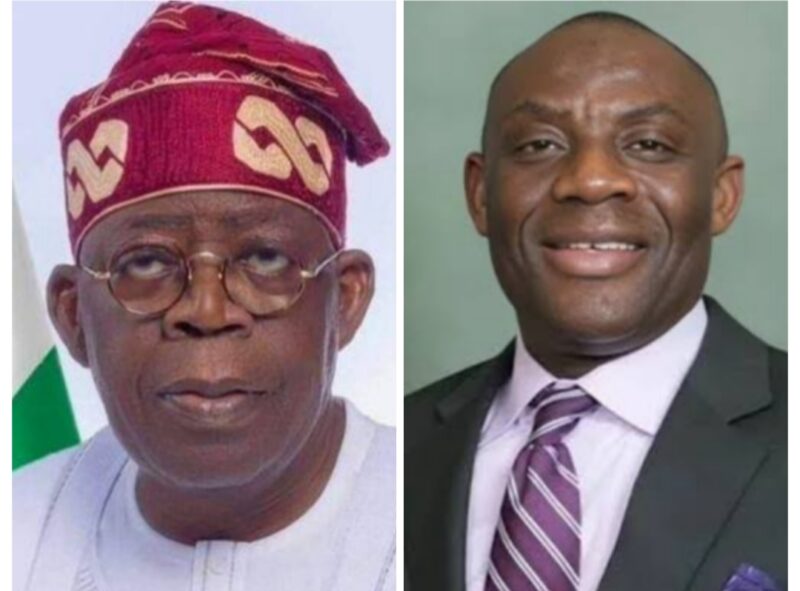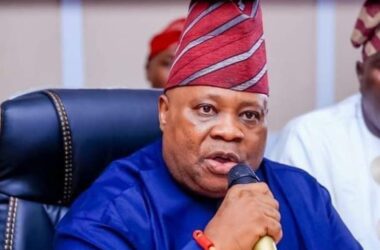By Oluwafemi Popoola
Across the country, millions of Nigerians are feeling the squeeze, grappling with the punishing effects of skyrocketing living costs and the fallout from the removal of fuel subsidies.
Despite repeated assurances from both the official and unofficial spokesmen of the governments both at states and federal levels that relief is on its way, public frustration continues to swell.
Yet, amid the challenges at the national level, one man is quietly leading a transformative charge where it matters most: education.
Dr. Tunji Alausa, is not merely implementing policies, he’s reimagining the entire framework. With bold moves and a clear-sighted agenda, Alausa is emerging as a quiet force of change, signaling a much-needed rescue mission for Nigeria’s struggling education system.
Since his appointment, Dr. Alausa has emerged as one of the standout performers in President Bola Tinubu’s cabinet and his much talked about Renewed Hope agenda. Alausa is not only a critical thinker but he firmly understands the imperative of people-first policies. Perhaps this explains why he has begun to reposition the education ministry as a model of efficiency and innovation. These qualities have earned him the nickname “the reform-minded minister” among stakeholders, educationists, and policy analysts alike.
And it’s not just because Alausa once restored failing kidneys being a nephrologist in his US reputable career, he’s applying the same clinical precision to resuscitate Nigeria’s ailing education sector, diagnosing deep-rooted problems and prescribing solutions with the confidence of a seasoned medical expert.
Take what is happening in the States regarding basic education. The parlous state of basic education in the country, seeing how primary school pupils learn sitting on the floor, sometimes under the shade outside with no roofs over their heads.
Even when pupils study inside, in many places in this country, it is under dilapidated and decrepit classrooms & buildings. There is serious concern about the poor welfare for teachers and below par teaching skills, especially in basic education and people are clamouring regarding the alarming figures of out-of-school across the country.
All of this, while several State Govs are not tapping into available federal funds, and in particular the Universal Basic Education Fund which has hundreds of billions of Naira for states to use to transform primary and JSS in their States.
Alausa is now making the move to persuade States to do something and offering credible data driven analysis of how the states can transform basic education in their domains.
While some in the government are busy with political gymnastics and social media stunts, Alausa is indeed running national education reform clinic.
From unplugging scholarships that encouraged brain drain to powering universities with clean energy and taking bold steps against bullying in schools, the good doctor is serving us something rare in today’s political climate — intentional governance. He may not have the flashiest title, but he’s fast becoming a silver lining in an otherwise cloudy public service landscape. He is exactly the kind of reformer this country needs: low ego, high output.
And to be fair Dr. Alausa is not flying solo in this rising tide of ministerial performance. What is certainly undeniable is the serious attention that a big part of Human Capital Development-ie education is now getting in this country offers everyone something worthwhile to cheer about.
Since Alausa’s redeployment from the Ministry of Health to Education in October 2024, he has been operating like a man on a rescue mission. And in truth, that’s exactly what Nigeria’s education sector needs — resuscitation.
Just recently, on May 7, 2025, he signed a landmark Memorandum of Understanding (MoU) with the Rural Electrification Agency (REA) under the Energizing Education Programme (EEP). The agreement will see mini-grid systems — ranging from 1.1 to 12.5MW — built across Nigerian tertiary institutions and teaching hospitals. Universities like UNILAG, OAU, UNN, ABU Zaria, UniBen, and UI were recently onboarded under Phase IV. Now, instead of running their labs and lectures on diesel fumes and wishful thinking, students will have access to reliable electricity. The Ministry isn’t just lighting up campuses — it’s powering possibility.
And in what can only be described as a bold, pragmatic move, Alausa announced the discontinuation of the Bilateral Education Agreement (BEA) Scholarship Programme — the same initiative that sent scores of brilliant Nigerians abroad, never to return. Some critics called it harsh. I call it smart governance. According to the Minister, “Every course Nigerians travel abroad to study is now available — and often of higher quality — within our own universities and polytechnics.”
Truth be told, Alausa has a point. Why keep exporting brilliance when we can build brilliance at home? But Alausa didn’t stop there. He recently launched Nigeria’s first-ever National Anti-Bullying Policy — a significant step forward in ensuring schools become safe, inclusive spaces for all children
Bullying has become a pervasive issue in many Nigerian schools, manifesting in various forms such as verbal abuse and physical violence. The case of Sylvester Omoroni is still fresh in the memory. Sylvester was a victim of bully in his school Dowen college, which resulted to him losing his life after sustaining internal injuries from the bully.
As a once upon teacher myself, I understand the silent trauma many students endure daily — the ones who suffer in the hands of bullies while everyone turns a blind eye. With this move, Alausa is saying, Not on my watch. Brilliant, isn’t it?
In addition, the consequences of bullying extend beyond the individual. It has an adverse effects on the overall school climate and the mental health of students.
The success of this initiative will depend on collective efforts from educators, parents, students, and the community to foster an environment where every child can thrive free from fear and intimidation.
And because Dr. Alausa’s heart never left the health sector, he’s also leading efforts to rehabilitate 18 medical schools across Nigeria’s six geopolitical zones. Through the TETFund High Impact Intervention Project, the ministry is tackling Nigeria’s alarming shortfall of medical professionals. Currently, the country faces a deficit of over 300,000 doctors. This effort isn’t just about infrastructure — it’s about ensuring we stop exporting healthcare seekers and start producing world-class caregivers.
All these initiatives are part of the Nigerian Education Sector-Wide Renewal Initiative (NESRI) — the overarching reform blueprint guiding the Ministry’s current direction. NESRI aims to reposition the sector around STEMM education (Science, Technology, Engineering, Mathematics, and Medical Sciences), digital learning, infrastructure upgrades, and teacher development.
It’s refreshing to see someone treating education with the seriousness it deserves. And not just because it sounds good in a press release, but because the future of the nation literally depends on it.
It’s easy to be cynical. Trust me, I know. Every day, we wake up to headlines that drain optimism like a faulty borehole. But every now and then, someone comes along with a different kind of energy — not the “go viral” energy, but the “go to work” energy. That’s the kind of vibe Dr. Tunji Alausa is bringing to the Ministry of Education.
If the Renewed Hope agenda were to be judged strictly on performance, it would be impossible to ignore Alausa’s contribution. He’s holding the fort. He’s engaging it. He is wiring it with solar panels, writing a new curriculum, and while he’s at it — kicking bullies out of the schoolyard.
Let’s be thankful for people like Alausa in governance and leadership. Who knows, their positive energies could be infectious!
Popoola is a journalist and political analyst.










